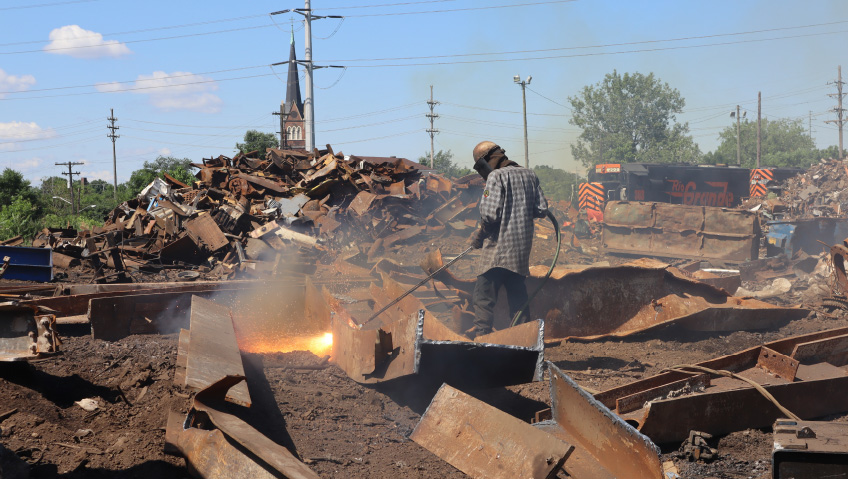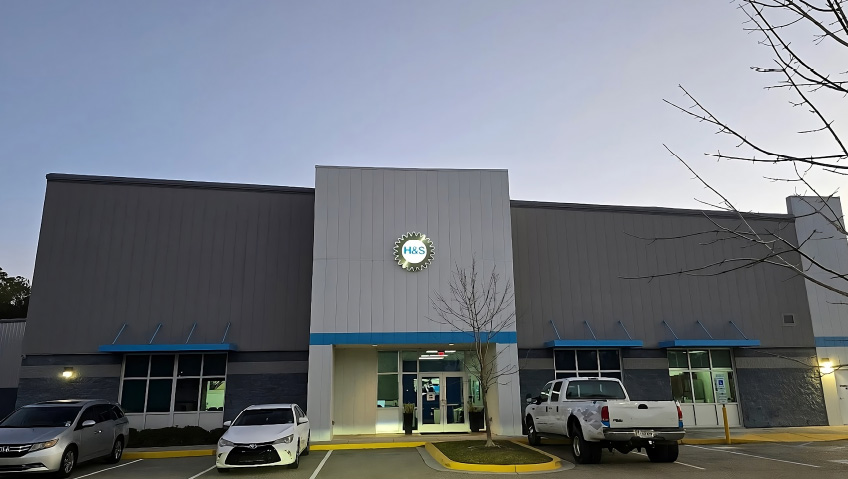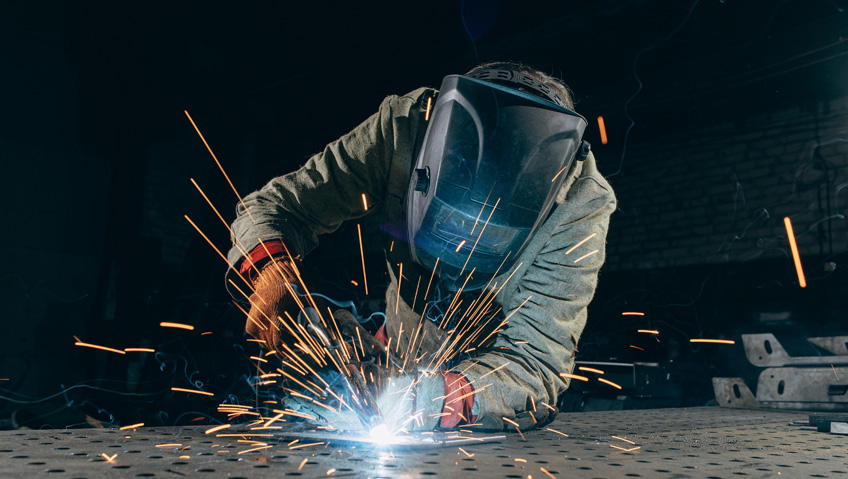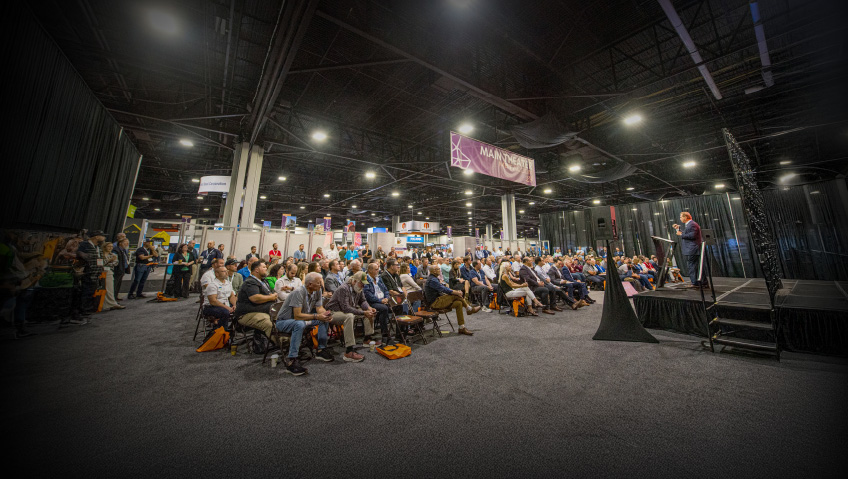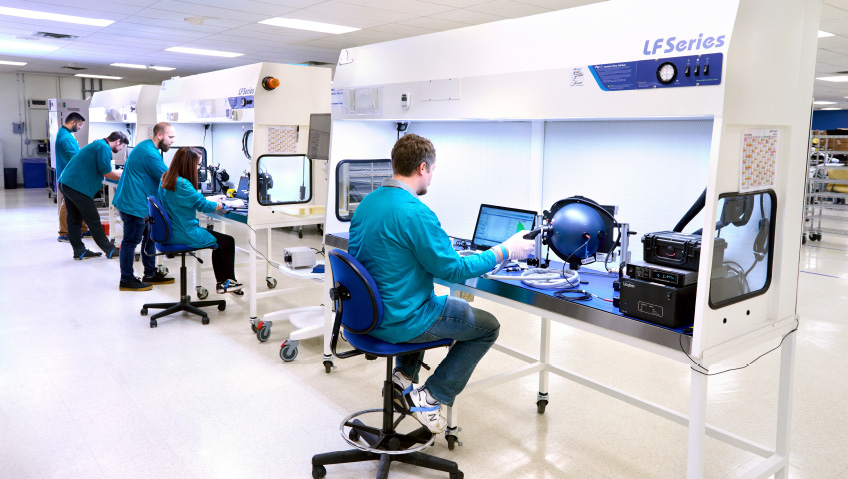Back in 1974, Quality Components Company (QCC) focused on repairing welding torches, regulators, and gas apparatus from other manufacturers. Known as Quality Repair at the time, the Mentor, Ohio-based business started in America’s famous ‘Rust Belt,’ a region known for its steelmaking and industrial manufacturing businesses.
In time, the founder was joined by his son, who came up with an idea: instead of repairing torches manufactured by other companies, why not start making their own?
“If you were a repair shop, a customer would come in with broken stuff,” says QCC’s General Manager Josh Flagner. “You would find out what you had to buy, get those parts, and do repairs.” Wanting to be more than a repair shop, the company started creating its own line of parts.
Years of hands-on experience and analyzing the strengths and weaknesses of torches made by other companies led to the privately held company establishing successful product lines fairly quickly. In 1999, the founder’s son bought the company from his father, and the name was changed to Quality Components Company to better suit the business’s new direction and services.
Made to last
At Quality Components, torches, cutting machines, tips, gas distribution systems, and other equipment aren’t just well-made, but engineered for the real world.
“When a customer wants a torch, we know what that torch is supposed to accomplish, and how durable it’s supposed to be,” says Franklin Mayse, Sales Engineering Manager. “No matter what anybody says about how you’re supposed to use a torch, people out in the field are beating them up. They’re poking and moving things with them and using them as hammers. So, we don’t try to find the cheapest way to make a piece of equipment knowing it’s going to get beaten up out in the field. We just don’t do that,” he says.
“Instead, we go above and beyond every step of the way to make sure the equipment that leaves here stands up to what it actually sees in the field, not just what’s on the best practices list.”
The result? At QCC, all components are domestically sourced. The company uses high-quality stainless steel and doesn’t offer a ‘value’ line. The company ensures there is enough bracing in its tubes, often using thicker tubing than many competitors.
Unlocking potential
For decades, QCC had been a successful but small Ohio-based company with fewer than a dozen dedicated employees. Well-known in the area and not so much outside of it, much of QCC’s business came through word-of-mouth recommendations. There was no advertising, and there were no dedicated salespeople trying to generate leads.
Then, a prominent group, recognizing QCC’s tremendous potential for growth, acquired the company about two years ago. This saw the business bring experts on board, including Nick Dinardo as Marketing Manager, a newly created position.
Although there are larger players than QCC, the group recognized the company’s importance in a niche market. With an established customer base, QCC stands out from bigger companies who have “a lot of institutional blind spots,” says Dinardo.
“As a business becomes gigantic, and they put processes in, some people get left out,” he says. “So there is value in being a small business, being able to take on lower-volume custom jobs, and deal with customers and solve problems. And that’s why we acquired QCC in April 2022, and we have been running it since then.”
For the company and its clients, the acquisition has brought welcome benefits, as QCC transitions from a modest-sized business into a larger entity. As a company, QCC now has marketing plans and sales strategies, attends trade shows, and continues to build its decades-long reputation for quality.
Keeping the quality
General Manager Flagner—who has an extensive manufacturing background—remains proud that the new owners kept every single employee when they took over. “We worked hard to keep the ‘quality’ part of Quality Components Company,” he says, acknowledging that there are cheaper ways to manufacture products but refusing to do so, choosing instead to maintain QCC’s legacy.
“Every piece of every product line we have, we buy from domestically sourced raw material. And we can verify every hole is the right size and every angle is the right angle,” says Flagner. “We do all of that in-house and don’t have any parts made elsewhere and sent to us. We don’t offshore parts or anything like that.”
Flagner is also proud of QCC’s original staff for giving the new owners a chance and staying with the company. “We’re having a really good 2024 and are expecting big success in the second half of the year,” he shares.
The company’s reputation for quality and innovation is no recent development and goes back to the beginning. Although the founder wasn’t an engineer by trade, his hands-on experience and troubleshooting know-how enabled him to design outstanding products. His knowledge, combined with a dedicated staff, including a torch assembler and gas assembler who have been with the company for 34 and 25 years respectively, has helped make QCC what it is today.
Mindful of the need to bring on new workers, the group behind QCC has welcomed younger staff in their twenties and early thirties, including the shop supervisor who is a CNC mill specialist and another newcomer in the torch department. QCC is successfully balancing new hires with seasoned employees for the benefit of both customers and company.
Domestic and international
For clients, one of the many advantages of working with Quality Components is its location. Mentor, Ohio is just a few minutes from Cleveland, the heart of American steel production. It isn’t unusual for customers to walk in the door and say the head of their damaged torch needs to be fixed.
Many local clients are small scrapyards that need torches to cut metal to the right size and shape for resale to steel mills, foundries, and processing plants. QCC works with customers at all stages of the metal’s life cycle, from the moment molten hot steel is made, cooled, and cut to steel processors who cut steel for their clients. Other customers include shipyards making frames and support structures, and railroad track maintenance and repair.
“Most of our business is in the United States, but we are always looking at ways to expand that to other markets,” says Flagner. The company also serves clients in Canada, Mexico, Brazil, and Europe.
Patent success
As part of its commitment to innovation and quality, QCC has several patented products under its belt, including a line of flowmeters. Uniquely designed and made with heavy-duty brass and 1/4” inlet and outlet construction, these flowmeters boast internal floats within transparent tubes, 1/8”-thick durable plastic outer tubes, and many other features. According to the company, “The outer tube has a calibrated scale printed on the inside surface to protect it from dirt and scratches and accurately measures to within plus or minus four percent of full range, exceeding the most stringent maritime industry requirements of five percent.”
The company is also known for another patented product, its QC Series caster torch tip. Designed to work with QCC’s QC Series torches, these tips are extremely effective in the oxy-fuel industry and are capable of cutting materials over 60” thick!
The company is also behind the QCC 4900 Series powder cutting torches. Specially designed to cut through challenging non-ferrous materials like stainless steel, nickel, and cast iron, these hand-held torches feature unique “powder” nozzles, which “feed iron powder into the flame to enable cutting,” says the company. These are available in lengths from 36” to 120” and have options including heat shields, skids, and head angles of 180, 90, or 75 degrees.
Ideal for hard-to-process metals, the company’s iron powder cutting torch works well for cutting unusual structures like castings, stacks, or bundled materials like coils, since they inject fine iron powder into the flame. Sufficient heat is taken up by the powder instead of the metal that’s being cut to maintain a temperature below the ignition point of stainless steel. This allows stainless steel to be cut like normal carbon steel.
Boots on the ground
Perfect for scrapyard customers, these torches were a hit at the recent ISRI show (ISRI recently rebranded itself to ReMA, the Recycled Materials Association). Being a ReMA member allows QCC to have a platform servicing scrapyards.
“We were the only company at that show selling torches and cutting equipment for the scrappers—we are the boots on the ground,” says Flagner. “While we’re not the only company selling to ReMA members, this shows that of all the other brands of torch businesses supplying scrapyards, none of them are putting in the time and effort that we are. We’re trying to be on the ground with the people doing the work, making sure we have good solutions for all sorts of different applications,” he says.
“Scrapping is so diversified,” he adds. “There are different types of metal, and people have stuff all over the place. We are out there trying to solve problems, and ReMA gives us an opportunity to do that. With ReMA’s local chapters, it’s a great way to network and meet other companies that are selling to the scrapping industry, and scrapping customers. The big show is great, but probably in the long run, there is even more value in the remote local chapters and marketing there.”
Along with ReMA, QCC is a proud member of AIST, the Association for Iron & Steel Technology. A non-profit association, AIST has about 16,600 members from over 70 countries. “In the long term, it’s a really good organization for us,” says Flagner. “We’re building relationships and getting into steel mills and other operations on the ground level, learning about more technologies and operations with steel manufacturers and helping them solve their problems.”
As newer steel mills are being powered by electricity and run more efficiently on scrap, QCC sees even more business as steel mills process their own scrap on-site for recycling and put recycled steel back into new steel production.
In the future, Quality Components Company will continue to have a hand in every stage of the steelmaking and recycling process. Innovating smarter designs, such as torches that can be positioned further away from hot metals, makes for more precise cuts, using less gas and resulting in longer torch lifespans.
Says Flagner: “There are other machine torch tips like this in the world, but our founder looked at it and said, ‘I can make this better.’ He improved the design, got it patented, and the U.S. Government said, ‘Yep, you made it better.’ So the QC Series machine torch tips are the best solution for that application in the entire industry.”

